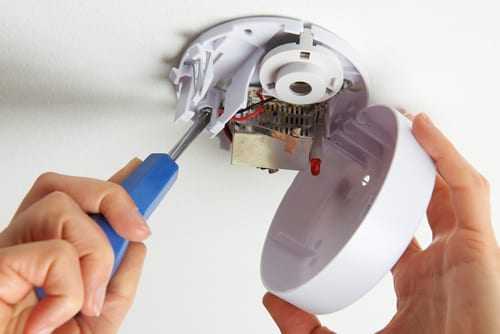Service Upgrades:
Electrical Service Upgrades are related to your Panel upgrade, but only necessary when you have added onto your home or changed from Gas appliances to all electric equipment. Your typical size service to a Gas appliance home is 100 amps. Which is the NEC minimum. Larger or ‘All electric’ homes are typically 200 amps. There is a wide range of reasons to have your Electrical Service upgraded. In the past your home may have been in an unincorporated area (county) and didn’t get inspected by Licensed Inspector, possibly resulting in sub-standard or outdated electric equipment. When your power service provider changes their overhead transmission lines to ‘underground’, they will require you to upgrade and bring it up to the present code that is in effect. Your service should be sized at least 40% of the total demand of your breakers, 60% is suggested and 80% is optimal. Having your electrical service assessed is a good thing to do if only for ‘Peace of Mind’. If an upgrade is necessary for safety reasons; your Homeowners Insurance may compensate for some or all of the expense…? Our Technicians and Estimators can assess your service equipment and explain what you have and/or what you need to repair.
Panel Upgrades:
Upgrading your electrical panel may be necessary due to the age of your home or when you have added on to your home and your panel is using more than the manufacture’s busbar rating for ‘Thin’ (skinny or piggyback) breakers to accommodate the new circuits. This can be easily identified by the Panel’s model number; if it has combo numbers such as “8/16, 12/24 or 30/40”. Then it is legal to have the larger of the two numbers. If it has more breakers than the model states; It is highly recommended that you upgrade the panel. Skinny breakers are legal if used correctly. Certain brands of panel manufactures have been designated as obsolete and most Home Insurance Companies can require that they be replaced. Such as Zinsco and Federal Pacific Electric (FPE). The NFPA (Fire Department) can also require that you relocate your panel to a more accessible location if it was put in a ‘closet’ or in a kitchen cabinet. Some upgrades may only need to have the breakers replaced with newer, more reliable ones. We can assess your power system and recommend the necessary repairs needed.
GFCI:
Ground Fault Circuit Interrupters are also known as GFCI’s and just GFI’s are very common in homes thru-out the country. They are required by The National Electrical Code (NEC) and The National Fire Protection Association (NFPA) as in your local Fire Department. These devices were introduced around 1969 and became a requirement in the 1972 NEC for receptacles located outside and bathroom receptacles. Today’s requirements include any receptacles with-in 6’ of sinks, garages, outdoor outlets, plumbing equipment and more. Most people consider them a nuisance because they seem to trip out so easily. But they are just doing their job to protect you from using faulty appliances, garden tools, bad extension cords and more. Most, if not all Home Insurance Policies require GFCI’s to be installed in the proper locations. Arc Fault Circuit Interrupters (AFCI) are not to be confused with GFCI’s; they are designed to detect faults in the house’s internal wiring and loose or bad connections in receptacles or switches. GFCI’s were designed to save lives and reduce the chances of home electrical related injuries. But they can go bad and need to be replaced. We can assess your home and advise you on areas of your home that need to be GFCI protected.
Dedicated Circuits:
Dedicated circuits are circuits that control 120 v. and/or 240 v. equipment in your home. Most of your wall receptacles and light fixtures are multiple outlet circuits; several on one breaker/fuse. Common dedicated circuits are Ovens, Micro-waves, Washers, Dryers, Water Heaters, HVAC equipment as well as Dishwashers and Disposals. In today’s age, a lot of us work out of our homes and may require dedicated circuits for wood working tools, air compressors, pottery kilns and may-be just for that Freezer in the garage. As our transportation selection is changing form Gas powered vehicles to Electric; the need for a dedicated circuit to charge that new car is becoming highly requested. We can add those dedicated circuits for whatever your needs may be.




